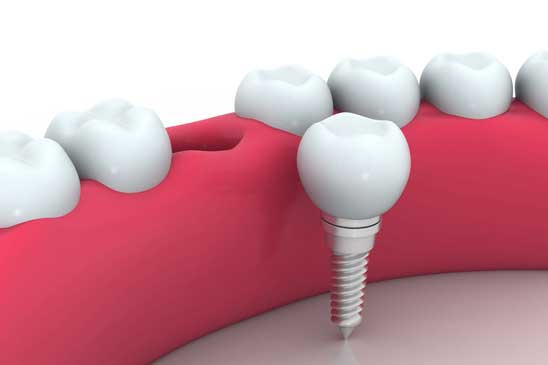Single Tooth Replacement: What are my options?

Patients who have lost a single tooth have a number of options to replace them, including fixed dental bridges and partial dentures. We encourage patients in this situation to also consult with an oral surgeon to explore dental implants, which offer the most structurally complete tooth replacement available in modern dentistry.
When you lose a tooth, you lose both the crown, which affects your smile’s appearance and the root, which can compromise your smile’s stability. Therefore, it’s preferable to choose a tooth replacement that consists of both of these structures. Enter dental implants.
Dental implants are small cylinders that are made of the biocompatible metal titanium. Therefore, the bone tissue surrounding the implant site is capable of forming a strong bond with the implant’s surface after the oral surgeon places the dental implant in the jaw. As such, the dental implant eventually becomes a fixture in the patient’s jaw, allowing it to function as a pseudo root of sorts.
Many patients don’t recognize this, but the root is tremendously important to the smile’s structure even though it is not a visible part of the smile. The tooth’s root helps to secure the jawbone and allows a person to chew fairly fibrous foods that require a significant amount of force to process. Therefore, to maximize the functionality of the smile after tooth loss, a structurally complete tooth replacement will be the best choice.
In order to benefit from dental implants as a tooth replacement option, however, patients must have adequate bone tissue at the implant site for osseointegration to complete. If you have delayed treatment for your tooth loss for some period of time or you have congenital bone defects, your oral surgeon may advise you to have a preliminary bone graft to supplement the available tissue at the site.
If you need to replace a single missing tooth, be sure to research dental implants as a treatment option. Feel free to call our team at Stonebriar Facial & Oral Surgery and schedule an initial evaluation to learn more about this intervention and explore whether it might be the right fit for you.
